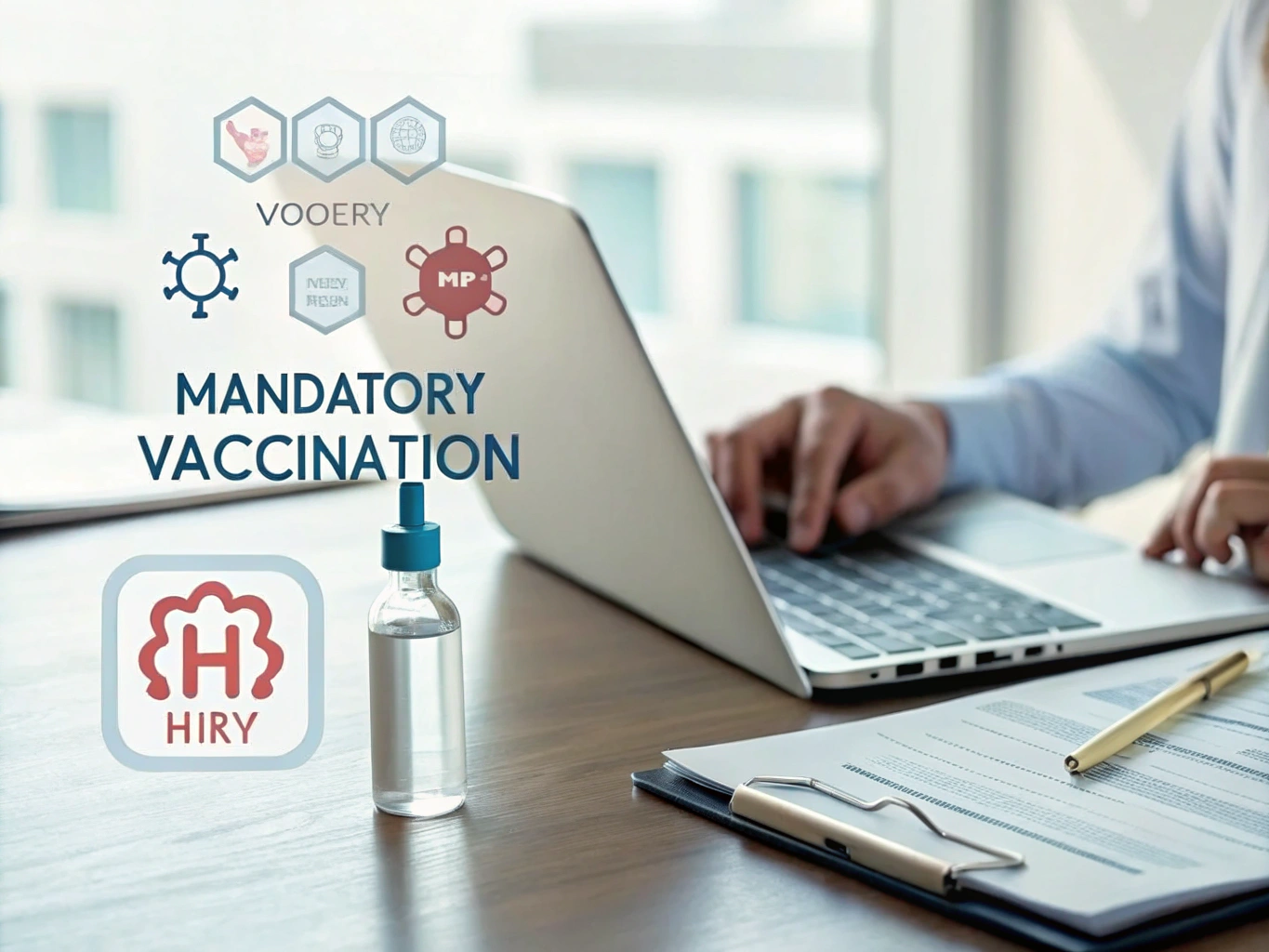Definition
A Vaccination Policy Mandatory is a clear set of guidelines established by an organization requiring all employees, contractors, and other relevant individuals to be vaccinated against specific infectious diseases. This policy aims to foster a safer workplace environment by minimizing health risks and preventing the spread of illnesses, including but not limited to COVID-19.
Key Components
When creating a mandatory vaccination policy, it’s essential to cover several key aspects to ensure clarity and compliance among all individuals affected by it.
- Vaccination Requirement: All individuals under this policy must provide documented proof of vaccination against designated infectious diseases. This may include vaccines for COVID-19, flu, and others as guided by health authorities. For instance, employees might be asked to submit their vaccination cards to the HR department for verification.
- Exemptions: Recognizing that not everyone can or wants to be vaccinated for various reasons is vital. The policy should outline a process for requesting exemptions based on medical or religious grounds. For example, an employee who has a medical condition that contraindicates vaccination may submit a doctor’s note to support their request.
- Accommodations: For those granted exemptions, it’s crucial to implement safety measures to protect them and their colleagues. This could involve regular COVID-19 testing or mandatory mask-wearing in shared spaces. For example, an unvaccinated employee may be required to work from home or limit their interaction in communal areas.
- Compliance and Consequences: It’s important to clearly outline the repercussions of non-compliance with the policy. This could range from a warning to potential termination, depending on the severity of the violation. For instance, if an employee fails to provide proof of vaccination without a valid exemption, they may face disciplinary action.
- Confidentiality: The policy must ensure that all vaccination-related information is kept confidential and shared only with authorized personnel. This protects employees’ privacy and fosters trust within the workplace. For example, vaccination records should be securely stored and only accessed by HR staff on a need-to-know basis.
- Updates and Communication: As guidelines and public health recommendations evolve, keeping the policy updated and communicating changes effectively is critical. Employees should be informed of new vaccination opportunities and resources to assist them in complying with the policy.
Importance in the Workplace
Implementing a mandatory vaccination policy is increasingly relevant in today’s workplace. It not only helps to protect the health of employees but also reassures customers and clients that the organization takes safety seriously. For instance, a company that enforces such a policy may experience fewer illness-related absences, leading to enhanced productivity and morale. Moreover, in industries where close contact is inevitable, such as healthcare or hospitality, a vaccination policy can be a pivotal factor in preventing outbreaks and maintaining operational continuity.
Best Practices
To effectively implement a mandatory vaccination policy, consider these best practices that can guide you through the process:
- Engage Employees Early: Involve employees in the conversation about the policy. Conduct surveys or hold discussions to gauge their concerns and suggestions. This will help in crafting a policy that addresses their needs and promotes acceptance.
- Provide Clear Communication: Ensure that the policy is communicated clearly and transparently. Use multiple channels—emails, staff meetings, and intranet postings—to reach everyone. For example, create an FAQ document that answers common questions about the policy.
- Offer Vaccination Support: Facilitate access to vaccinations by partnering with local health services. Consider offering paid time off for employees to get vaccinated or to recover from any post-vaccination side effects.
- Monitor Compliance Effectively: Establish a straightforward process for employees to submit vaccination proof and track compliance. This could involve using an online portal where employees can securely upload their vaccination documents.
- Stay Informed: Keep abreast of local and national public health guidelines and adjust your policy as necessary. Regularly review and update your policy to reflect changes in legal requirements or health recommendations.
Legal Considerations
When crafting a mandatory vaccination policy, it’s crucial to be aware of legal implications, including employee rights and privacy laws. For example, the Americans with Disabilities Act (ADA) allows for medical exemptions, while Title VII of the Civil Rights Act covers religious exemptions. Ensure that your policy complies with these laws to avoid potential legal challenges. Additionally, consider consulting with legal counsel to ensure that your policy is sound and protects both the organization and its employees.
Conclusion
Understanding and implementing a mandatory vaccination policy is a significant step towards ensuring a safe and healthy workplace. By prioritizing the well-being of your employees and fostering an environment of trust and safety, you can enhance productivity and morale within your organization. Remember, a well-structured vaccination policy not only protects individuals but also contributes to the overall health of the community. As you navigate this complex issue, keep communication open and be responsive to the needs of your workforce.




